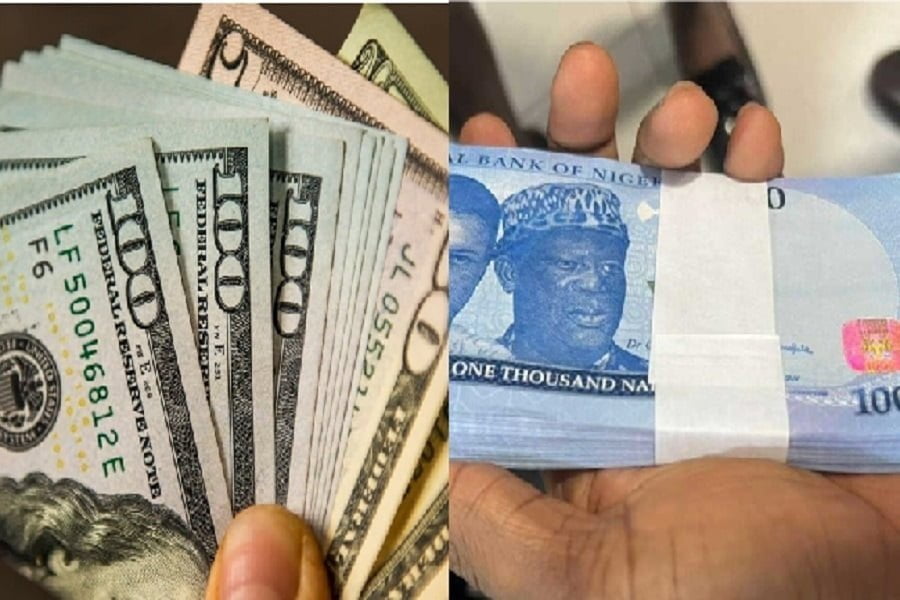Article Summary
- Nigeria’s foreign exchange supply through the official window increased to $15.2 billion in 2022, representing a 17.7% rise from 2021 and a 46.4% increase from 2020.
- The increase in supply was primarily driven by the Investors and Exporters (I&E) window, which accounted for 100% of the total forex supply in the official window.
- The lack of forex supply in the Bureau De Change (BDC) market had adverse effects, contributing to the depreciation of the naira and creating a shortage of forex in the country.
Nigeria’s foreign exchange supply through the official window has increased to $15.2 billion in 2022, according to data from the Central Bank of Nigeria (CBN).
This represents a 17.7% increase from the $12.9 billion recorded in 2021 and a 46.4% increase from the $10.4 billion recorded in 2020.
The official window comprises the Wholesale Dutch Auction System (WDAS)/Retail Dutch Auction System (RDAS), the Interbank market, the Bureau De Change (BDC) market, and the Investors and Exporters (I&E) window, as well as the Small and Medium Enterprises (SME) and Invisibles segments.
The breakdown of the forex supply through the official window in 2022 is as follows:
- The WDAS/RDAS recorded zero supply after the CBN suspended this segment in February 2015.
- The Interbank market recorded zero supply, as the CBN merged this segment with the I&E window in August 2017.
- The BDC market recorded zero supply, as the CBN stopped selling forex to BDC operators in July 2021, citing abuse and illegal activities.
- The I&E window recorded a $15.3 billion supply, accounting for 100% of the total forex supply through the official window. This represents a 5.6% increase from the $14.5 billion recorded in 2021 and a 54.8% increase from the $9.9 billion recorded in 2020.
Effects of zero supply on BDC operators
One of the factors that contributed to the depreciation of the naira in 2022 was the lack of forex supply from the BDC market. The BDC market is a segment of the official window where licensed operators buy and sell forex to retail customers at a margin.
The BDC market usually provides liquidity and stability to the forex market, as well as a source of income for many Nigerians. However, in July 2021, the CBN stopped selling forex to BDC operators, accusing them of engaging in illegal activities such as hoarding, speculation, and money laundering.
The CBN also claimed that BDC operators were charging exorbitant rates and exploiting customers. As a result, the BDC market recorded zero supply in 2022, leaving the I&E window as the only source of forex supply through the official window.
What you should know
The I&E window is a segment of the official window where authorized dealers and buyers trade forex at market-determined rates. The I&E window was introduced by the CBN in April 2017 to boost liquidity and transparency in the forex market. It allows foreign investors and exporters to buy and sell forex at market-determined rates.
The I&E window recorded a $15.3 billion supply in 2022, which was not enough to meet the high demand for forex in the country. This created a shortage of forex and put pressure on the naira, which depreciated by 9.4% against the dollar in 2022.
The increase in forex supply through the official window in 2022 can be attributed to several factors, such as:
- The improvement in crude oil prices and production boosted Nigeria’s external reserves and export earnings.
- The introduction of the Naira for Dollar scheme by the CBN, incentivized remittance inflows from Nigerians in the diaspora.
- The implementation of the Nigerian Autonomous Foreign Exchange Rate Fixing (NAFEX) mechanism by the CBN harmonized the exchange rates across different segments of the market.
- The reopening of international borders and airports facilitated trade and tourism activities.
The forex supply through the official window is expected to remain stable or increase further in 2023, as the CBN continues to implement policies and interventions to support the naira and ensure exchange rate stability.

